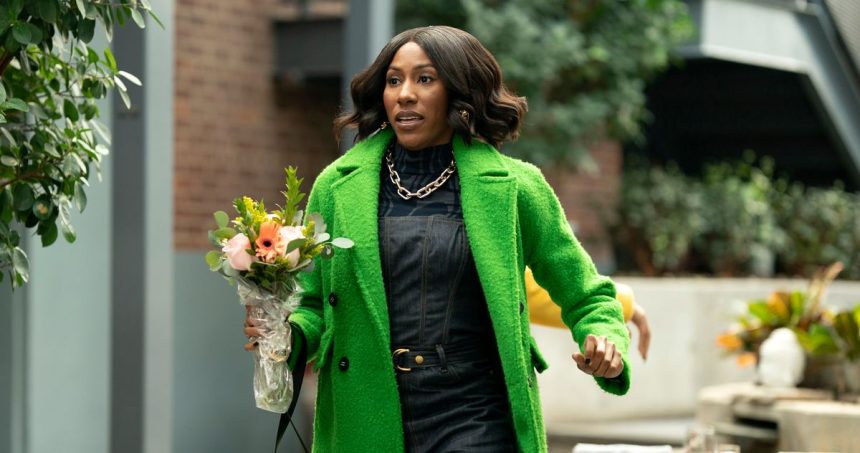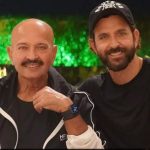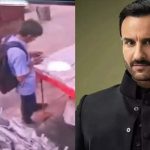Photo: Vanessa Clifton/BET+
The greatest place on earth to be from, according to Diarra Kilpatrick, is Detroit. She won’t capitulate to those who may bristle or sneer at the mention of her hometown, which has received past notoriety for high rates of violent crime. In her show Diarra From Detroit, Motor City is milieu and muse.
The BET+ series traces namesake protagonist Diarra Brickland’s farcical descent into the city’s criminal underworld. Spiraling from the dissolution of her marriage to Swa (Morris Chestnut), Diarra downloads Tinder and shares a magical night with a handsome stranger, Chris. To her surprise, before the second date, her charming rebound vanishes — no text, no communication. After cycling through familiar post-ghosting motions of self-doubt, a pinch of delusion and some chance clues snap Diarra out of despair and lead her to the conclusion that Chris’s disappearance is linked to a decades-old cold case.
Diarra’s transformation from schoolteacher to newly minted internet-detective type (yes, the sort who are suddenly body-language experts) is a comical nod to the conspiratorial impulses of true-crime fans. But beyond the absurdity of Diarra’s quest, which she embarks on alongside pals Moni (Claudia Logan) and Aja (DomiNque Perry), the show’s charm is also derived from its distinct sense of origin.
“I just tried to honor the place,” Kilpatrick says, and part of doing so meant receiving the specters of Detroit’s history with grace. “There have been times when it’s been violent,” she adds. “I don’t think there’s anything wrong with admitting that.”
It’s not glib, then, that the show features a character named Danger, who frequently robs people’s homes but also touts the wonders of therapy. “These characters are trying to be better. They’re just failing,” explains Kilpatrick. “And that’s what’s interesting to watch.”
When Morris Chestnut first appears onscreen, there’s a slow-motion sequence that presents him as a sort of contrast to Diarra. She’s trying to get her life together and here comes this handsome, perfect man.
Diarra goes on such a wild ride. She is falling apart. Her husband was the sun in her life and it burned out. We wanted people to get that right away. He has such a gravitas that even if you see him for two seconds, women everywhere understand, like, Girl, yeah. I get why you’re depressed. If Morris Chestnut walked out of my life, I’d be totally bereft.
Is her quest to find Chris, then, about regaining some sort of control?
You’re so astute. We definitely talked in the writers’ room about her reclaiming her power. But, at the same time, she’s very avoidant. It’s easier to solve a cold case than it is to go through a divorce. Even though it’s insane, it’s almost easier for her to do that than to sit in her feelings.
Have you ever been ghosted?
I’ve been saying this whole time, “Sorry. I’ve never been ghosted. My friends talk to me about it and I just wrote it in the show — wasn’t me.” But I forgot I have been ghosted. You know what it is, I’m old enough that we weren’t calling it that.
When I was a freshman in college at NYU, I met an MTV DJ on the street. We went on two dates and then he fell off the face of the earth. I was still very much a little girl. I think I started trying to date all these grown men; they were probably like, “What is wrong with this girl? She’s very weird and not ready to be in a relationship with a grown man.” So, I was ghosted by three different dudes. One was an MTV DJ. The other is now a Marvel actor. And the third is another actor. [Laughs.] And I have repressed it until last night.
The show’s very funny, but there is a sobering subtext. Diarra, who’s just met Chris, has invested more resources in him than a police force has in over a decade. Do you feel parallels to the contemporary moment?
Yes. There’s a heaviness to the time and there has been since the pandemic. I want people to kick back and really enjoy the show, but at the heart of me secretly is the activist. Something that people are starting to pick up on is that it does require a lot of resources inside of these structures like police departments. They have to go above and beyond.
There’s been conversations about defunding the police. This character, this story, which is an origin story for a PI, is definitely a sexy imagining of what it might look like for Black people to police their own communities to some degree.
How did you navigate incorporating complicated aspects of Detroit’s history without playing into misconceptions of the city as hyperviolent or decaying?
I mean, listen, I just tried to honor the place. Detroiters often have a hard shell, even though there’s the chewy center on the inside. I don’t think there’s anything wrong with admitting that. The nuance comes when you get all the way inside these characters and you understand why people are the way that they are. You could be a great person but also could have survived traumatic circumstances, and the residue from that is on you.
What I tried to do in those situations where the characters who could be the most stereotypically “Detroit” — you know, Danger, who plays someone who isn’t always on the right side of the law — I just tried to put as much of myself in those characters as possible so that they felt human and real. Danger is in therapy, so am I. I love me a good therapy session. Moni, at the heart of her, is a wife and a mother who loves her family and would do anything for them, and that part is very true for me. She’s bemoaning the fact that her titties are different than they were before she had kids; that could have come straight out of my diary.
So, I don’t think that as Black people we have to pretend that every single Black person is a saint. That dishonors our humanity. Sometimes we fall with the wrong crowd. Sometimes we talk shit. If we pretend we’re perfect, that actually dehumanizes us.
There are references to class differences in the show as well. Diarra’s husband earns more than her; Moni thought Diarra was uppity after she got married; Aja’s trying to be this Forbes “30 Under 30” entrepreneur.
I really wanted to represent the breadth of what Black women go through from an economics standpoint. Sometimes we separate, in Black stories, the Black people who brunch and the Black people who are a little more hood and are in the drug game. I feel like most Black people are one or two degrees away from either kind of person. It’s important to me that Black women of all economic backgrounds are able to see themselves on the show.
I have friends and family who are just trying to make ends meet every time the gas prices go up. And then I have my girlfriends who are trying to change the world. They’re trying to break every glass ceiling. I wanted to show them love. I’m rooting for them.
In episode five, Diarra delivers a love letter to Detroit. She’s in this frazzled state. Her hair is messy, makeup smudged. Talk to me about the delivery of this monologue.
Pretty early in the room, we hit on this idea that Diarra is a metaphor for the city itself — how it was caught between old and new versions of itself. It always bothered me when I would tell people I’m from Detroit, and then they would be like, “Ooh, girl, how you doing? Are you okay? What are you going through?” And I was like, “What are you talking about? This is one of the greatest places to be from on the planet.”
So Sadé Clacken Joseph, who directed episode five, said to me, “I’d like to shoot this like that moment in Love Actually, where Hugh Grant is the prime minister and he’s espousing the beauty of what it is to be from the U.K.” We gave ourselves permission to have just the dollop of pure saccharine. Diarra, the character, is talking about one thing, but Diarra, the writer, is talking about the love of a place that made me.
What is old Detroit versus new Detroit?
Gentrification is wild. Detroit growing up was such a thoroughly Black City. Everybody from the mayor to the garbage collector was Black. You could be whoever you wanted to be. There was freedom and affirmation in that. If you saw a white person downtown, it was either the hockey game, the hoedown, or the electronic music festival. Now, the opposite is true. You don’t see a lot of Black people go downtown.
So many people recognize that there’s a spirit to being a Detroiter and they want to be a part of it. That’s beautiful. But at the same time, it can do something to the self-esteem of a city if people are saying for the first time, “Oh, Detroit is poppin’,” because there are less Black people out or because there are more white people. And it’s complicated, because from a financial standpoint, people’s property values are going up. But I always want Detroit to come back for the people who’ve been waiting on it. I want them to feel a part of the renaissance.
This interview has been edited and condensed.












